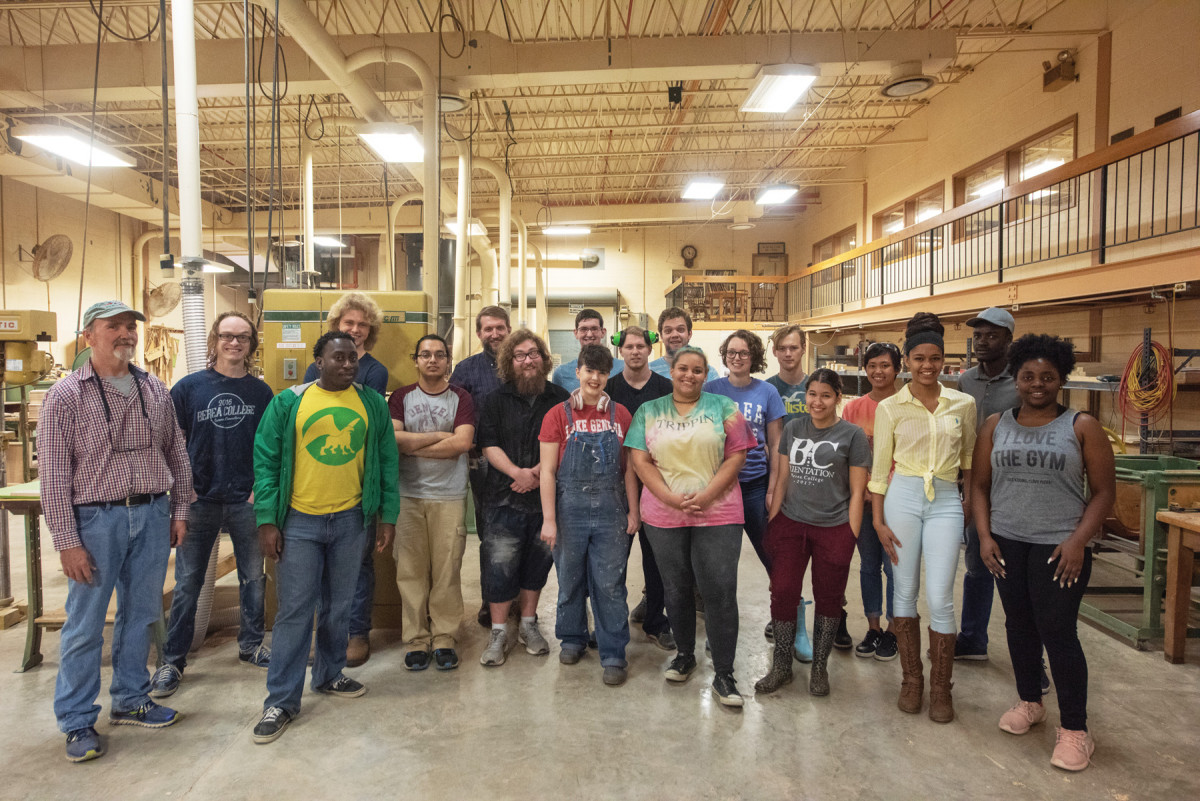We may receive a commission when you use our affiliate links. However, this does not impact our recommendations.

The 2018 woodcraft program crew at Berea College. Students from all backgrounds learn woodworking skills and make items to sell in the college’s craft store to support the college.
Craft is a part of well-rounded college education.
Editor’s note: This article originally appeared in the August 2018 issue of Popular Woodworking Magazine.
I recently moved to Kentucky from Maine to head up the woodcraft program at Berea College. Most of the undergraduate students who join the woodcraft crew do so without having ever set foot in a woodshop. Our crew’s main focus is to create the wooden crafts and furniture pieces the college sells to generate revenue and help cover tuition costs.
Students come to Berea College knowing they will work – Berea is one of nine federally-recognized work colleges in the U.S. where students do not pay tuition and work at campus jobs to earn money for living expenses. The woodshop provides some of those work positions. But it’s clear that to the students in the woodshop, it’s much more than just a job.
Situated in an artistic community just west of the Appalachian Mountains, Berea College was founded in 1855 on Christian ideals with deep roots in both social justice and the crafts. It was the first college in the south that admitted black students and female students. Its woodworking history includes the production of Wallace Nutting’s furniture line of early American pieces and preparing students for careers as a shop foreman or teaching industrial arts.
Today, we train woodworkers not out of nostalgia, but to provide a full, well-rounded experience to the students and to make quality woodwork that preserves Appalachian traditions. For many, this is their first experience working with their hands.
The students find enjoyment in the shop for the same reason many of us get “hooked” on woodworking – the ability and desire to produce something beautiful with our wits and a few tools. Just like the rest of the woodcraft community, our student crew gets to experience the many facets of woodworking: it’s challenging and fun, creative, attainable, humbling, communal and personal.
There are manual skills to be gained by learning woodworking. And I’m sure those skills will increase in value as our communities become more digital and service oriented. For the students, the manual skills complement their growing aptitudes, including their ability to scrutinize their work, plan and solve problems and set high standards. The experiential learning opportunities woodworking allows will benefit them both inside the shop and beyond.
While there are Berea College graduates who go on to choose craft as a full-time profession, our shop is mostly full of future nurses, teachers, engineers and computer programmers. We are a shop that is focused on growing skills and appreciation for this craft. How students use these skills after college is up to them. My hope is that making is always a part of their lives, as it has been for mine. –Andrew Glenn
Here are some supplies and tools we find essential in our everyday work around the shop. We may receive a commission from sales referred by our links; however, we have carefully selected these products for their usefulness and quality.








